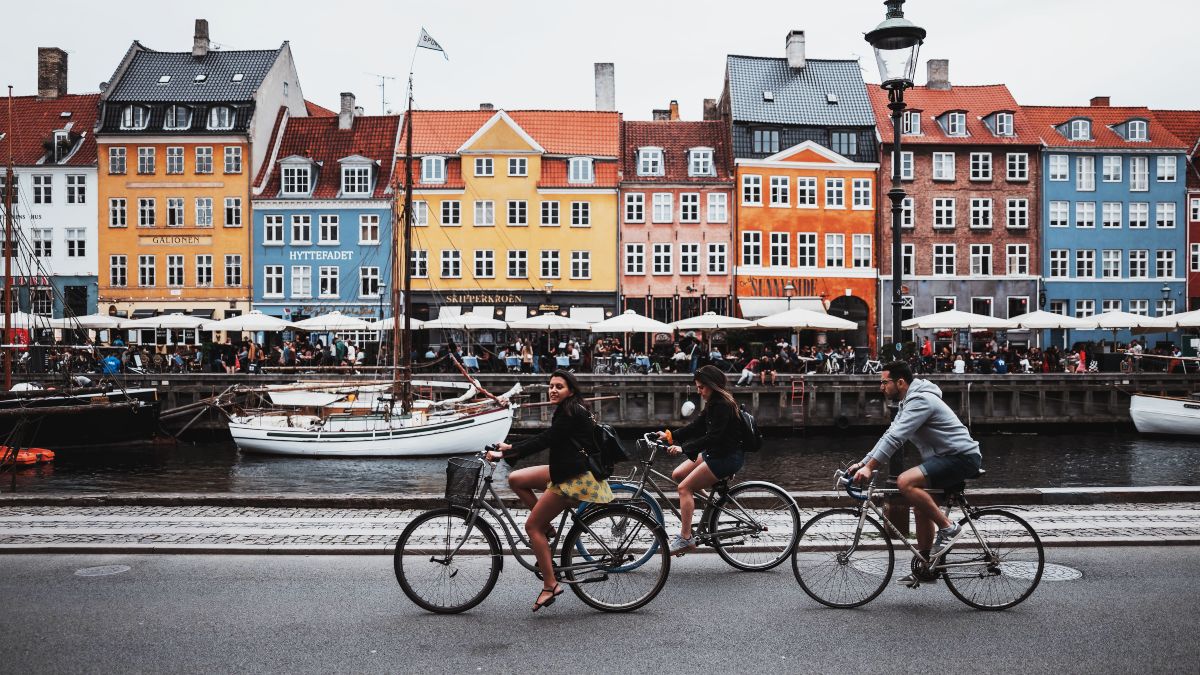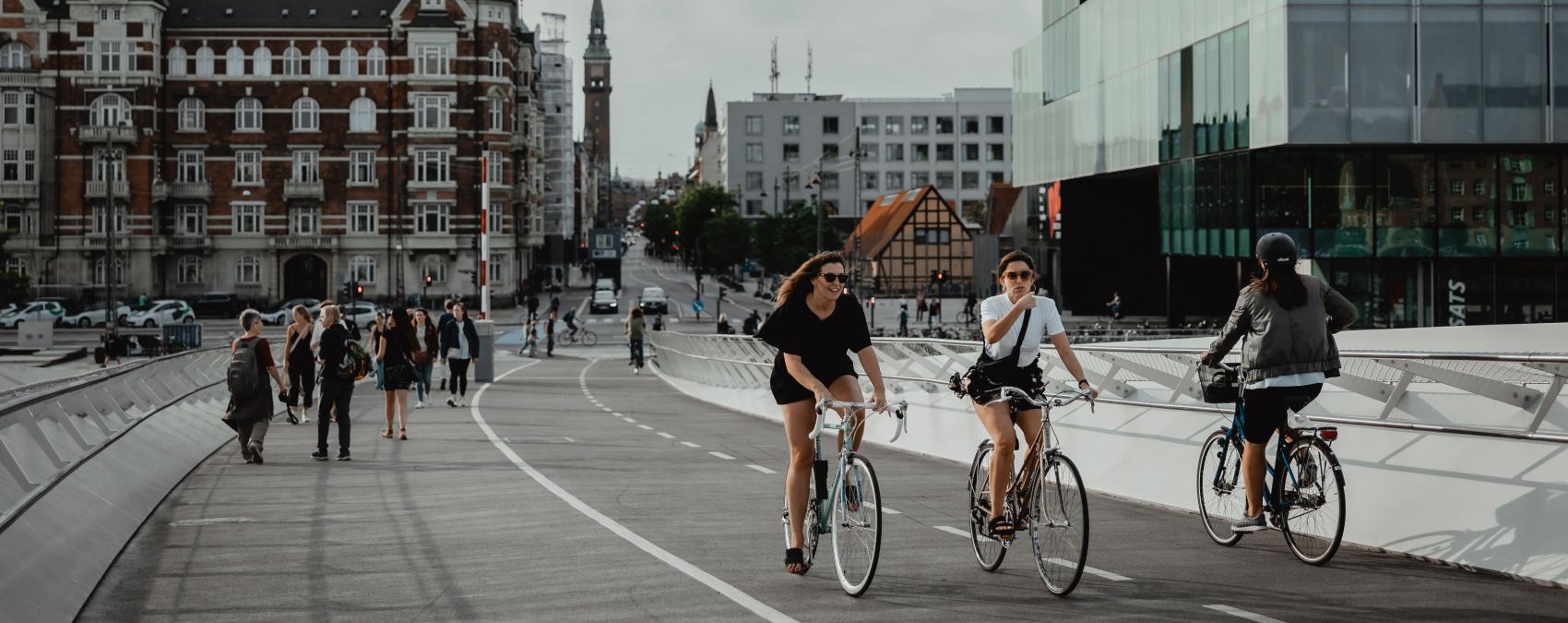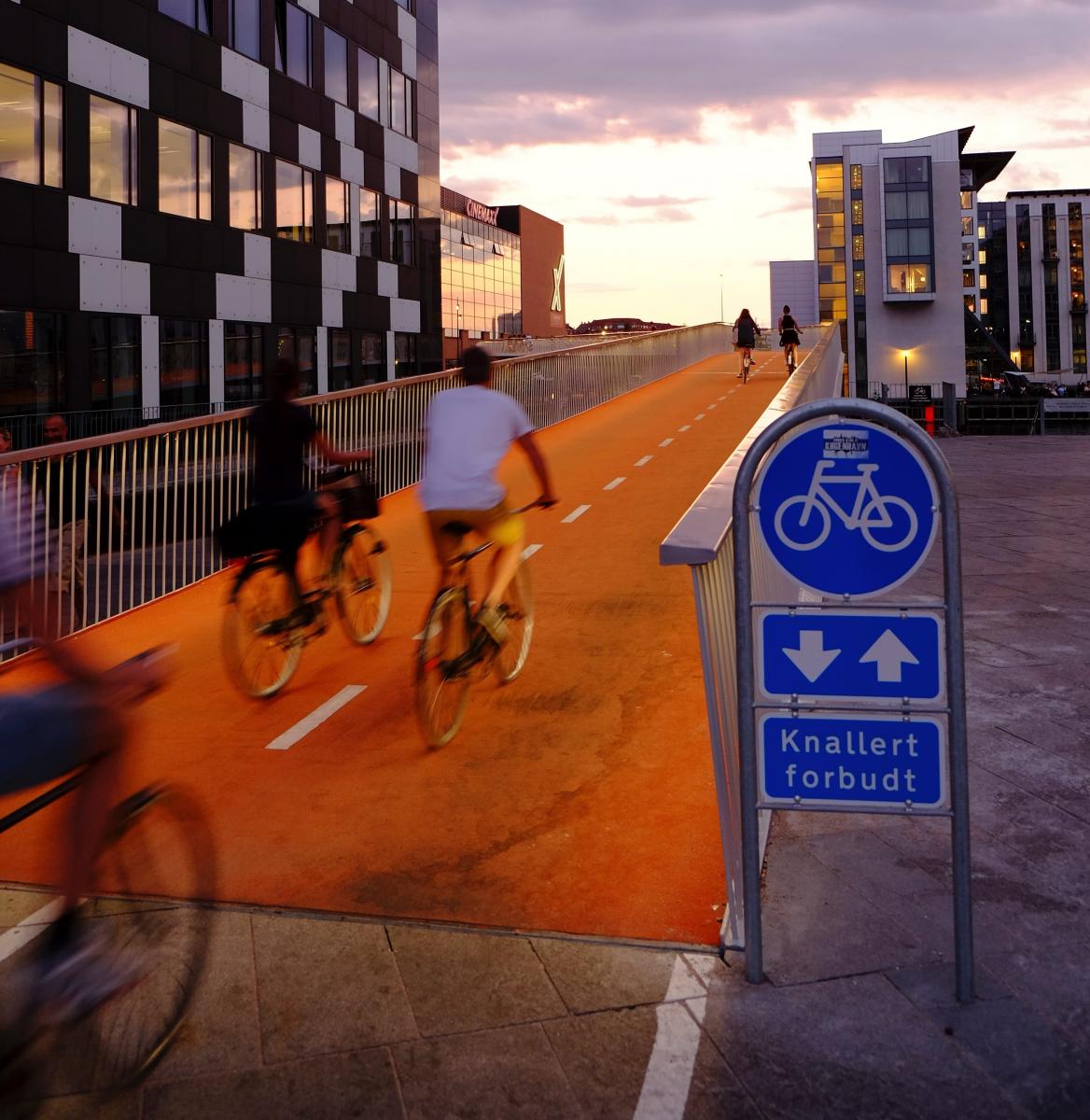
Klaus Bondam: “Everyday Cycling Should Not Have a Political Colour”
Klaus Bondam, CEO of the Danish Cyclists’ Federation, talks about Danish advocacy traditions, cross-partisan support for cycling in the Danish parliament and a cycling culture that has been taken for granted for too long.
A nation of cyclists? Denmark is known worldwide for its unique cycling culture and as a role model for countries aspiring to foster a cycling culture. Cycling accounts for 21% of all trips under 5 km in Denmark, and the average Dane cycles around 1.6 km per day. But in recent years, Denmark’s cycling culture has hit a bit of a roadblock. Trends show a significant increase in car ownership while cycling has decreased, especially among young people and children.
“Denmark is a country with a very strong cycling culture. Having said that, I feel there has been a tendency to have our everyday cycling taken for granted”, says Klaus Bondam, CEO of the Danish Cyclists’ Federation (DCF), a member of ECF. “There is now a common realisation that something needs to be done.”
Founded in 1905, DCF has been a loudspeaker for cyclists in Denmark ever since. And in typical Danish advocacy tradition, DCF initiated the Bicycle Think Tank in 2018 together with the Danish Bicycle Retailer Association to counteract the recent declines in cycling. “In Danish advocacy work, there is a tradition of gathering different stakeholders, we sit around a table, and we try to find a solution”, explains Bondam. “The politicians like that they have all the lobbyists in the same room”.
The Bicycle Think Tank brings together the transport spokesperson of almost every party represented in the Danish Parliament for five breakfast meetings per year. Different keynote speakers take the stage, raising key issues such as creating a map of Denmark’s entire cycling infrastructure or connecting municipalities with better infrastructure. These exchanges then set the tone for the first official debate on everyday cycling in the Danish parliament, which took place in February 2021.
Everyday Cycling Debated in the Danish Parliament
The debate followed a request to introduce a new Danish cycling strategy. Unusually, this request to the Danish Transport Minister was made by the traffic spokesperson of Venstre, a large centre-right party.
“A right-wing politician going at the forefront of the discussion shows that there is a strong political consensus on all the good that everyday cycling does in Denmark”, underlines Klaus Bondam. “Economic arguments work well with right-wing politicians because they see that we can become more productive, healthier and have bigger economic growth.”
Overall, the parliamentary debate in February saw strong cross-partisan support for cycling. All parties present at the debate, including Transport Minister Benny Engelbrecht, who refers to himself as #CykelMinister (bicycle minister) on social media, were convinced of the benefits of everyday cycling.
The debate also turned to fiscal incentives as a solution to boost cycling. “There has been a tendency to only focus on asphalt. ‘If the infrastructure is there, the cyclists will come’. Of course, this is true to a certain extent. However, more needs to be done, and we have called for fiscal incentives like reductions on bike repairs or the introduction of bike-to-work allowances for a long time. We really had to do a lot of work just to get this into the debate”, says Bondam. “It was extremely positive to hear politicians not only talk about asphalt but also about other incentives. It shows that the Danish Cyclists’ Federation makes a difference and that politicians listen to us.”
The outcome of this fruitful debate will be taken back to the Commission for Transport and turned into a notion that will inform the Transport Ministry’s future work.
This spring, the Danish parliament will decide on the Green Mobility Deal, which will set investment levels until 2030. “Now, we are waiting to see whether it will only be a discussion between the Government and the supporting parties, or if it will include all parties from across the political spectrum”, says Klaus Bondam.
“I hope that it will involve all parties because I believe that a lot of what we do on everyday cycling is about the local community, about the city, about freedom for children, the elderly and young people. And that should not have a political colour, everybody should be concerned with that”, he concludes.
Denmark aims to reduce CO2 emissions by 70% by 2030. These targets cannot be met without a sustainable transformation of the whole transport sector. Recognising the importance of everyday cycling is the first step.
Click here for more resources and information on cycling in Denmark.

Regions:
News category:
Contact the author
Recent news!
Upcoming events
Contact Us
Avenue des Arts, 7-8
Postal address: Rue de la Charité, 22
1210 Brussels, Belgium










